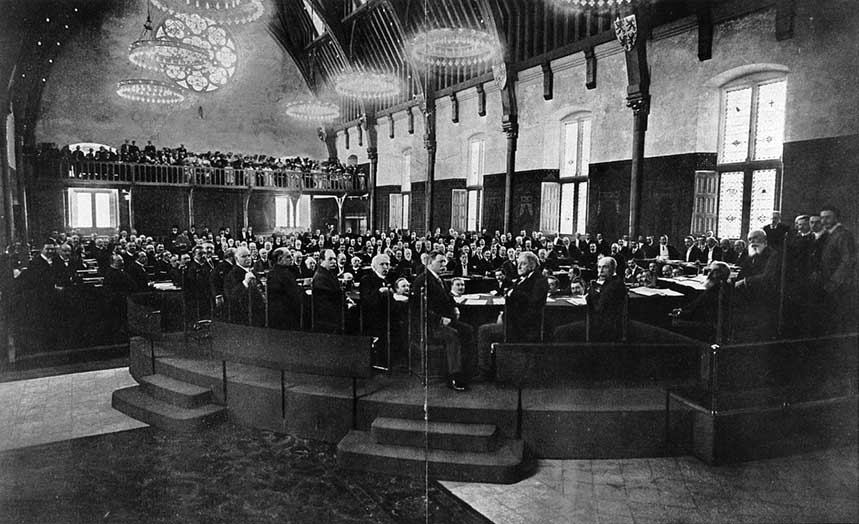1907 Second Hague Conference

Hague Conference
At the behest of President Theodore Roosevelt, leaders of all major nations met at The Hague. The major issue for discussion was the attempt to reach an arms limitation agreement. All attempts failed due to German opposition. The conference was successful, however, in expanding the rules of war and the rights of neutrals.
Roosevelt had hoped the convention could be held in 1904, but that was delayed due to the Russo Japanese War. The conference opened on June 15, 1907, at the Haik and continued until October 18 in the same year. The result of the meeting was mixed at best. The British and the Americans wanted to limit the building of naval ships, but this was posed by the Germans who believe the British wanted to freeze the current superiority. The conference also failed to renew the ban on aerial bombing at a time when it was becoming practical to use planes as weapons of war. It did, however, by presenting a whole list of acceptable targets implied banning civilians was illegal.
The conventions reaffirmed many of the agreements from 1898 relating to settling international disputes, how did to declare war, how to conduct a land war on how to conduct a naval war, and the rights of neutral nations during a war.
Many of the agreements included in the Hague convention of 1907 would soon be violated by the powers that fought World War I. However, the conventions of 1898 and 1907 have provided a legal framework that has been built on since then that is supposed to rule the conduct of nations in a time of war.
 >
>